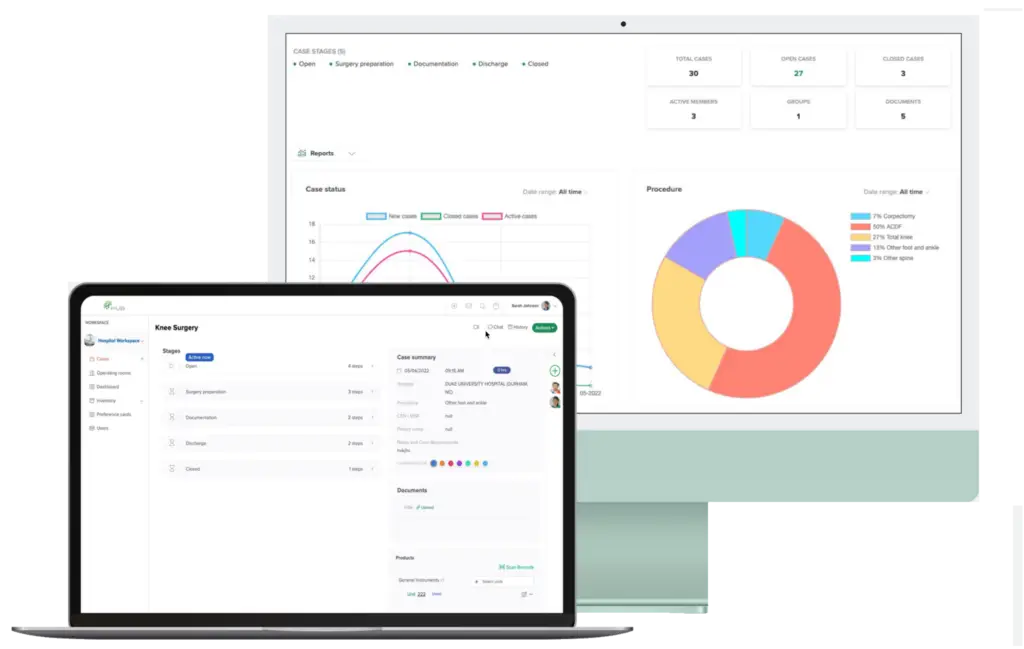Improving healthcare staff efficiency is crucial for providing high-quality patient care and optimizing operations. With the right software solutions, healthcare facilities can streamline workflows, enhance communication, and reduce administrative burdens. This article explores various ways software can improve healthcare staff efficiency.

Key Software Solutions for Enhancing Efficiency
1. Electronic Health Records (EHRs)
Electronic Health Records (EHRs) are essential for improving the efficiency of healthcare staff. EHRs provide a centralized, digital repository for patient information, making it easier for healthcare providers to access and update records. Benefits include:
- Instant Access to Patient Information: EHRs allow healthcare providers to quickly access patient histories, lab results, and treatment plans, reducing the time spent searching for paper records.
- Improved Coordination: EHRs enable seamless information sharing among different departments, ensuring that all providers have up-to-date information.
2. Automated Scheduling Systems
Automated scheduling systems can significantly reduce the time and effort required to manage appointments, staff rosters, and operating room schedules. Key features include:
- Real-Time Updates: Automated scheduling systems provide real-time updates on availability, helping to prevent double bookings and scheduling conflicts.
- Patient Self-Scheduling: Some systems allow patients to schedule their appointments online, freeing up staff time for other tasks.
3. Telemedicine Platforms
Telemedicine platforms facilitate remote consultations, enabling healthcare providers to see more patients in less time. Benefits include:
- Increased Accessibility: Patients can consult with healthcare providers from the comfort of their homes, reducing the need for in-person visits.
- Efficiency: Providers can handle more consultations in a day, improving patient throughput and reducing wait times.
4. Workflow Management Software
Workflow management software helps streamline administrative processes and reduce manual tasks. Features include:
- Task Automation: Automates routine tasks such as appointment reminders, billing, and patient follow-ups.
- Enhanced Communication: Facilitates better communication among staff members, reducing delays and misunderstandings.
5. Mobile Health Apps
Mobile health apps allow healthcare providers to access patient information and communicate with colleagues on the go. Key advantages include:
- Remote Access: Providers can access patient records and communicate with staff from anywhere, enhancing flexibility.
- Patient Engagement: Apps can also be used to engage patients, sending reminders and educational content to improve compliance and outcomes.

How HUB Healthcare Can Help
HUB Healthcare offers a comprehensive suite of tools designed to enhance communication in healthcare, streamline care coordination, and improve overall workflow efficiency. Our platform includes medical case management software, healthcare document management, and healthcare analytics to optimize patient care. By leveraging HUB Healthcare’s capabilities, organizations can reduce workflow bottlenecks, automate repetitive tasks, and facilitate better collaboration among healthcare providers. This not only improves work quality but also enhances patient outcomes, making HUB Healthcare an essential partner in achieving healthcare excellence.
Conclusion
Implementing the right software solutions can greatly enhance the efficiency of healthcare staff, leading to better patient care and optimized operations. By integrating EHRs, automated scheduling systems, telemedicine platforms, workflow management software, and mobile health apps, healthcare facilities can streamline their processes and improve overall efficiency. Investing in these technologies is essential for staying competitive and providing high-quality care in today’s fast-paced healthcare environment.
Visit our Help Center – Here





